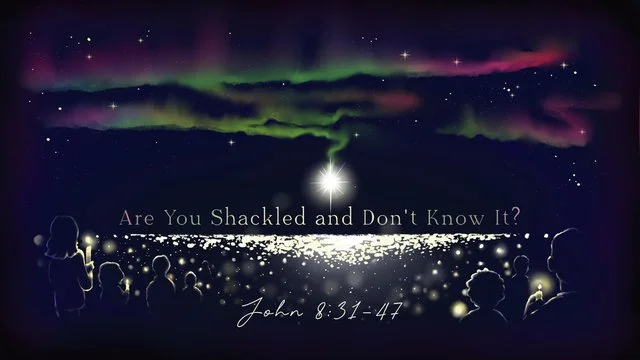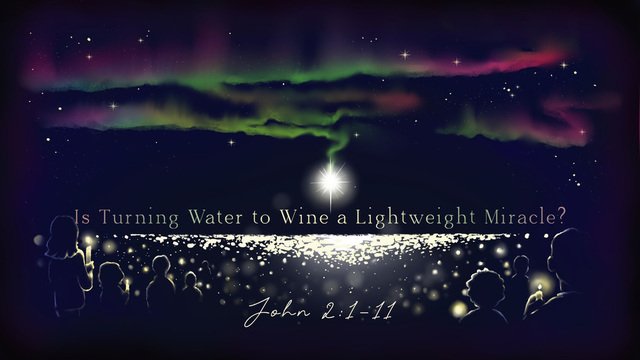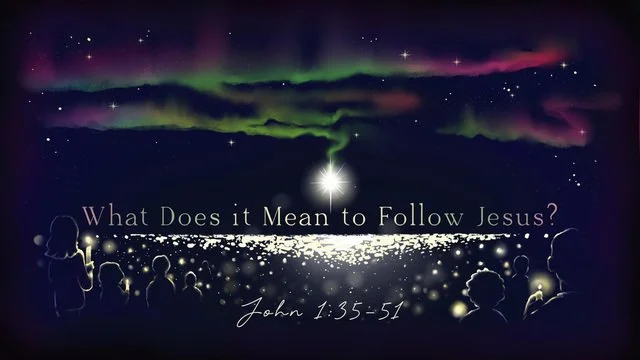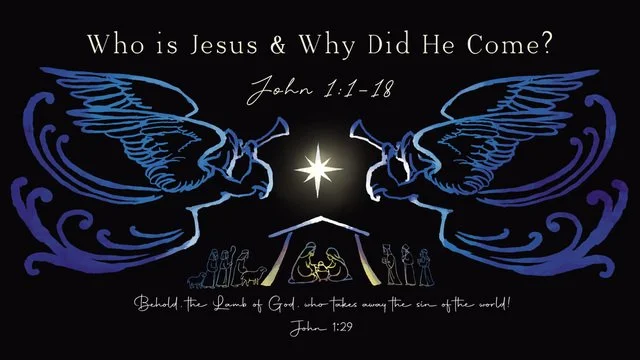Series: Signs & Glory
Title: “Does Jesus ask too much of me?"
Subtitle: The hard call of following Jesus.
Scripture: John 6:22-51
Exodus 3:14 "I am who I am"
Isaiah 52:13-53:12 "Suffering servant"
Luke 23:42 "Remember me when you come into your kingdom"
Bottom line: Jesus gave all his life, to give us all life. That's hard because he calls us to live our lives the same way.
"If anyone come after me, he must deny himself, take up his cross daily, and follow me." Luke 9:23
"Seek first his kingdom and his righteousness" Matthew 6:33
"Be perfect as my Father in heaven is perfect." -Jesus
"Come and see" -Jesus to his followers
"Come and follow" -Jesus to his followers
"Come and die" -Jesus to his followers
Is Jesus asking too much of me?
INTRODUCTION
CONTEXT
SERMON OUTLINE
CONCLUSION
NOTES
OUTLINES
QUESTIONS TO CONSIDER
DISCUSSION QUESTIONS
MAIN REFERENCES USED
Opening prayer: Lord God, help us grow to be and do like Jesus, while abiding in him and leading others to do the same.
INTRODUCTION
If you knew you couldn't die, would you live this life differently?
What would you do with your life?
How would you live differently?
I ask this because, as a Christ-follower, I will never die. Oh, yes, this body--this costume I call me--will die. But I will live forever. When this body dies, I will go home and live forever there.
When I truly believe this, it impacts how I live. Truly. It changes how I see the so-called dangers of this world. It affects how I see death so it affects what I fear.
What would it have been like for Adam to feel hunger and thirst for the first time? We hunger and thirst for
food and drink
Grace, mercy, compassion, justice, knowledge, honesty, friendship
Love, holiness, wisdom, truth, relationship
God has put these desires in us to tell us that something exists to satisfy these desires. Otherwise, God would be cruel.
"The language of John 6, they say, is metaphorical, and the theology is anti-sacramentarian. In many respects this argument is sound.
Eating the flesh of the Son of Man is a striking, metaphorical way of saying that the gift of God's real bread of life' (v. 35) is appropriated by faith (v. 47).
We must appropriate him into our inmost being. Indeed, as Beasley-Murray (p. 99) points out, we are more familiar with this kind of 'eating' metaphor than we may realize:
we devour books,
drink in lectures,
swallow stories,
ruminate on ideas,
chew over a matter, and
eat our own words.
Doting grandparents declare they could eat up their grandchildren.
On the very face of it, 'The theme of John 6 is Christology.'" -DA Carson
Bottom line: Jesus gave all his life, to give us all life. That's good. But it's hard too, because he calls us to live our lives the same way.
Is Jesus asking too much of me?
Outline Bible (Willmington) -- SECTION OUTLINE SIX JOHN 6 Jesus feeds the 5,000 and walks on water. He teaches that he is the "bread from heaven" and that all who wish to have eternal life must eat his flesh and drink his blood. Many of his followers, unable to accept this difficult symbolism, desert him.
I. TWO MIRACLES (6:1-24)
A. First miracle (6:1-15): Jesus feeds the 5,000.
B. Second miracle (6:16-24): Jesus walks on water.
II. Two MESSAGES (6:25-71)
A. Public comments (6:25-66)
Christ and the curious (6:25-40)
a. He speaks concerning God's salvation (6:25-36). (1) Their confusion (6:25-26, 28, 30-31, 36) (a) They want to know how he got there (6:25). (a) They seek him only for physical bread (6:26). (b) They don't know how to please God (6:28). (c) They assume the Old Testament manna came from Moses (6:30-31). (d) They don't believe in him even though they have seen him (6:36). (2) His correction (6:27, 29, 32-35) (a) They are to seek him for spiritual bread (6:27, 33-35). (b) They will please God by believing in him (6:29). (c) He says the Old Testament manna came from God (6:32). b. He speaks concerning God's sovereignty (6:37-40). (1) Guaranteeing that all the elect will come to Christ (6:37): They will never be rejected (2) Guaranteeing that all the elect will continue in Christ (6:38-40): All who believe in him will be raised at the last day.
2. Christ and the critical (6:41-59) a. Their criticism (6:41-42, 52) (1) He is simply the son of Joseph (6:41-42). (2) No one can (physically) eat his flesh and drink his blood (6:52). b. His correction (6:43-51, 53-59) (1) Jesus says he is the bread of life (6:43-51). (2) Jesus says that anyone who wants eternal life must (spiritually) eat his flesh and drink his blood (6:53-59). 3. Christ and the carnal (6:60-66) a. Many of his followers now decide against him (6:60-65). b. Many of his followers now depart from him (60:66).
Conclusion:
Bottom line: Jesus gave all his life, to give us all life. That's good. But it's hard too, because he calls us to live our lives the same way.
Is Jesus asking too much of me?
This poem is what could happen to you and me if we fully embrace and believe Jesus is who he says he is and will do all he's promised to do:
''Twas battered and scarred, and the auctioneer Thought it scarcely worth his while
To waste much time on the old violin But held it up with a smile.
"What am I bid, good folks," he cried, "Who'll start the bidding for me?
A dollar, a dollar—now two, only two-Two dollars, and who'll make it three?
"Three dollars once, three dollars twice, Going for three"-but no!
From the room far back a gray-haired man Came forward and picked up the bow;
Then wiping the dust from the old violin And tightening up the strings,
He played a melody, pure and sweet. As sweet as an angel sings.
The music ceased, and the auctioneer With a voice that was quiet and low,
Said: "What am I bid for the old violin?" And he held it up with the bow.
"A thousand dollars—and who'll make it two? Two thousand—and who'll make it three?
Three thousand once and three thousand twice And going and gone," said he.
The people cheered, but some of them cried, "We do not quite understand
What changed its worth?" The man replied, "THE TOUCH OF THE MASTER'S HAND."
And many a man with a life out of tune, And battered and torn with sin.
Is auctioned cheap to the thoughtless crowd, Much like the old violin.
A "mess of pottage," a glass of wine, A game and he travels on.
He's going once and going twice, He's going—and almost—gone!
But the MASTER comes, and the foolish crowd Never can quite understand
The worth of a soul, and the change that's wrought By the TOUCH OF THE MASTER'S HAND.
Myra Brooks-Welch
Has he touched you?
Bottom line: Jesus gave all his life, to give us all life. That's good. But it's hard too, because he calls us to live our lives the same way.
Is Jesus asking too much of me?
When your life has been touched by the Master's hand, you'll willingly give all to him.
"Receiving Christ's Satisfaction (vv. 53-58)
So Jesus said to them, "Truly, truly, I say to you, unless you eat the flesh of the Son of Man and drink his blood, you have no life in you." (v. 53)
Our Savior meant there must be a deep partaking of him. How do we do that? We must live depending on him as the bread of life. As James Boice says:
Is he as real to you spiritually as something you can taste or handle? Is he as much a part of you as that which you eat? Do not think me blasphemous when I say that he must be as real and as useful to you as a hamburger and french fries. I say this because, although he is obviously far more real and useful than these, the unfortunate thing is that for many people he is much less.
Is he substantially real to you? That is what is involved in treating him as the bread of life. This is one of the continental divides in the life of the soul, and this is where thousands flounder." -Hughes
What about you?
“Then he said, “Jesus, remember me when you come into your kingdom.””
Luke 23:42 NIV
https://bible.com/bible/111/luk.23.42.NIV
Peter puts it all in perspective in his first sermon:
““Therefore let all Israel be assured of this: God has made this Jesus, whom you crucified, both Lord and Messiah.” When the people heard this, they were cut to the heart and said to Peter and the other apostles, “Brothers, what shall we do?” Peter replied, “Repent and be baptized, every one of you, in the name of Jesus Christ for the forgiveness of your sins. And you will receive the gift of the Holy Spirit. The promise is for you and your children and for all who are far off—for all whom the Lord our God will call.”” Acts 2:36-39 NIV
Invitation
How do we respond? Answer 2 questions:
Take out a card or piece of paper right now. Write down the answer to these questions:
What is God saying to me right now?
What am I going to do about it? Write this down on a sheet of paper.
What I hear you saying, Lord, is ___________________.
[my name] is going to believe/do __________________________________________________ as a result.
Finally, share this with your Home or Mission group this week when you gather as a testimony about what God is doing in your life. You don’t have to get too specific to give him praise.
Lord's Supper, 1 Cor 11:23-26 is good passage.
Also, say something like, "Christ has died, Christ is risen, Christ will come again." (past, present, and future)
Pray
NOTES
V. 43 ἑλκύω helkyō draw; haul
A Concise Dictionary of the Words in the Greek Testament and The Hebrew Bible
DBL Greek pull in; lead by force
A Pocket Lexicon to the Greek New Testament
The Greek Word: ἕλκω (helkō)
Basic range of meaning:
“to draw, drag, pull”—sometimes with force
Used both literally (dragging a net of fish) and figuratively (drawing someone to a decision or relationship)
Key uses:
John 6:44 – The Father draws individuals to Jesus
John 12:32 – Jesus draws all people to Himself
John 21:6, 11 – Nets full of fish being dragged
Acts 16:19 – Paul and Silas are dragged into the marketplace
James 2:6 – The rich drag people into court
So yes—helkō often implies strong action, and sometimes even resistance. But context is everything.
Does “draw” mean “compel”?
Some interpret helkō in John 6:44 as “compel” in a deterministic sense—that is:
God irresistibly pulls the elect to Jesus. They don’t choose Him; He causes them to come.
This view often aligns with Reformed theology (i.e., Calvinism) and supports the doctrine of effectual calling: that those whom God draws will come to Jesus, and only those are drawn.
This interpretation emphasizes:
The initiative of God
The inability of humans to come on their own
That “draw” is not mere persuasion or invitation, but a decisive, effective action
Support from the text:
John 6:37: “All that the Father gives me will come to me”
John 6:44: “No one can come… unless the Father… draws”
John 6:65: “No one can come unless it is granted by the Father”
From this perspective, helkō doesn’t mean dragging against someone’s will—but it does mean that God changes the will so that the person now freely wants to come. It’s not coercion, but a gracious, inward transformation that leads inevitably to faith.
But is that the only possible reading?
Not necessarily. Others (including many Arminians and non-Calvinists) argue:
Helkō does not mean “compel” in the sense of removing human response.
It can mean strong persuasion or wooing, but leaves room for rejection.
Example: John 12:32—Jesus says He will draw all people to Himself, but not all respond. So, the drawing can be resisted.
This interpretation emphasizes:
God initiates, but humans can still respond freely
Not all who are drawn necessarily come
The term “draw” is strong, but not irresistible
So, is it accurate to say “God compels the elect to come” based on John 6:44?
That depends on what is meant by “compel”:
If you mean God changes their hearts so that they want to come, yes—that’s a fair representation of effectual grace in Reformed theology.
If you mean God drags people against their will, no—that’s not the biblical picture. The will is transformed, not violated.
If you mean God draws only the elect, and they always come—yes, that’s how many Reformed interpreters understand it.
If you mean God draws everyone but only some respond, then you’d be in a different theological camp—seeing helkō as strong but resistible grace.
In Summary:
View
Draw =
Who is drawn?
Result
Reformed (Calvinist)
Effectual grace; God changes the heart
Only the elect
They will come
Arminian / Non-Calvinist
Strong persuasion; resistible grace
All people
Some respond
Universalist
God draws all and all eventually come
All people
All are saved (not supported by John 6:44)
So yes—saying that in John 6:44, draw means God effectively brings certain people to Himself is a legitimate reading within a Reformed theological framework. But other faithful, scholarly readings see helkō as powerful yet resistible—emphasizing human response within God’s initiating grace."
Here’s a simplified, congregation-friendly version of the chart, with plain language and trimmed content. This could be used in a handout, slide, or teaching note:
What Does “Draw” Mean in John 6:44?
View
What It Means
Who Is Drawn?
What Happens?
Key Verses
Reformed
God powerfully changes hearts so people come
Only those chosen
They will believe in Jesus
John 6:37, 6:44, Rom. 8:30
Arminian
God strongly invites, but people can resist
Everyone
Some believe, some don’t
John 12:32, Acts 7:51
Universalist
Jesus draws all, and all will eventually respond
Everyone
Everyone is saved
John 12:32, 1 Tim. 2:4
OUTLINES
Simple Outline of John 6:22–60 (ChatGPT)
1. The Crowd Searches for Jesus (vv. 22–25)
The crowd realizes Jesus is no longer near them.
They cross the sea to Capernaum, looking for Him.
They find Him and ask, “Rabbi, when did you get here?”
2. Jesus Confronts Their Motives (vv. 26–27)
Jesus exposes their motivation: they are seeking Him because of the miraculous feeding, not for true understanding.
He urges them to seek the food that endures to eternal life.
3. The Crowd Asks About God’s Work (vv. 28–29)
They ask, “What must we do to do the works God requires?”
Jesus replies: believe in the one He has sent.
4. The Crowd Demands a Sign (vv. 30–31)
5. Jesus Declares He Is the Bread of Life (vv. 32–40)
Jesus contrasts the manna with Himself—the true bread from heaven.
He promises that whoever comes to Him will never hunger or thirst.
He explains His mission: to do the Father’s will and give eternal life to those who believe.
6. The Crowd Grumbles (vv. 41–42)
They murmur because Jesus claims to have come down from heaven.
They question how He could say that, since they know His earthly family.
7. Jesus Reiterates the Father’s Role and the Gift of Life (vv. 43–51)
Jesus emphasizes that only those drawn by the Father come to Him.
He again identifies Himself as the living bread that came down from heaven.
He says, “Whoever eats this bread will live forever.”
8. Jesus Intensifies the Language (vv. 52–59)
The crowd disputes among themselves: “How can this man give us his flesh to eat?”
Jesus presses the metaphor further: unless they eat His flesh and drink His blood, they have no life in them.
He speaks of real food and real drink—His flesh and blood—and promises eternal life and resurrection.
9. The Disciples React (v. 60)
QUESTIONS TO CONSIDER
What do I want them to know?
Why do I want them to know it?
What do I want them to do?
Why do I want them to do it?
How do they do this?
DISCUSSION QUESTIONS
Discovery Bible Study process: https://www.dbsguide.org/
Read the passage together.
Retell the story in your own words.
Discovery the story
What does this story tell me about God?
What does this story tell me about people?
If this is really true, what should I do?
What is God saying to you right now? (Write this down)
What are you going to do about it? (Write this down)
Who am I going to tell about this?
Find our sermons, podcasts, discussion questions and notes at https://www.gracetoday.net/podcast
Alternate Discussion Questions (by Jeff Vanderstelt): Based on this passage:
Who is God?
What has he done/is he doing/is he going to do?
Who am I? (In light of 1 & 2)
What do I do? (In light of who I am)
How do I do it?
Final Questions (Write this down)
MAIN REFERENCES USED
“John,” by R. Kent Hughes, Preaching the Word Commentary, Edited by Kent Hughes
Exalting Jesus in John, by Matt Carter & Josh Wredberg
The Gospels & Epistles of John, FF Bruce
John, RC Sproul
John, Köstenberger
The Gospel According to John, DA Carson
The Light Has Come, Leslie Newbigin
The Visual Word, Patrick Schreiner
“Look at the Book” by John Piper (LATB)
“The Bible Knowledge Commentary” by Walvoord, Zuck (BKC)
“The Bible Exposition Commentary” by Warren Wiersbe (BEC)
Outline Bible, D Willmington (OB)
NIV Study Bible (NIVSB) https://www.biblica.com/resources/scholar-notes/niv-study-bible/
Chronological Life Application Study Bible (NLT)
ESV Study Bible (ESVSB) https://www.esv.org
The Bible Project https://bibleproject.com
Nicky Gumbel bible reading plan app or via YouVersion
Claude.ai
ChatGPT
Google Gemini
Read More




















